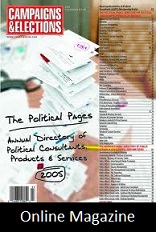 In 1976 Georgia Governor Jimmy Carter campaigned for President by preaching “change” and urging Americans to “clean out Washington”. The peanut farmer turned one term southern governor, eked out a relatively close victory. After Watergate, Americans fell for the freshness of Carter’s appearance on the national stage. Some even liked the fact that he spoke about his evangelical Christian faith and even more believed in his mantra for change.
In 1976 Georgia Governor Jimmy Carter campaigned for President by preaching “change” and urging Americans to “clean out Washington”. The peanut farmer turned one term southern governor, eked out a relatively close victory. After Watergate, Americans fell for the freshness of Carter’s appearance on the national stage. Some even liked the fact that he spoke about his evangelical Christian faith and even more believed in his mantra for change.
Well they got that change. It came in the form of one of the most dismal economic times in our nation’s history since the Great Depression. It was the type of change that brought about double digit inflation and unemployment rates, out of control interest rates, long lines for gas, higher taxes, stagflation and even a new economic index….the misery index. The change he brought us was what Carter himself called “a national malaise”.
Change also came in foreign affairs. Here, America’s standing in the world was reduced to one of empty words, no influence and utter humiliation.
In Carter’s pursuit of human rights, he supported overthrowing the Shah of Iran who was friendly to the United States. That led to the Shah being overthrown and replaced with the Islamic theocracy that is still our enemy today. It also resulted in their taking over of the American embassy and humiliating the United States by holding American citizens hostage.
When Soviet backed revolutionaries killed Adolph Dubbs, our Ambassador to Afghanistan, and began the march to invade Afghanistan, Carter was powerless and reduced to being a mere spectator.
Carter’s friendly, pearly white smile projected sincerity and confidence. He was seen as the change we needed, a change for the sake of change. What we got was a nation that needed it’s economy rebuilt, our military rebuilt and a direction in foreign affairs that stood up to our enemies and allowed the United States to change the events in the world rather than be changed by the events. A direction that allowed us to shape history rather than be sidelined as a witness to history.
Carter believed that we needed to give our enemies a chance to vaildate their conduct and the opportunity to negotiate acceptance of their unacceptable actions. He tried to negotiate the release of our citizens by Iranian Islamic radicals who had no reason or willingness to negotiate their release and give up their ability to humiliate America. It was a humiliation that we endured until the very moment that Ronald Reagan was sworn in as the new American President. It was only then that the Iranians suddenly feared military reprisal from the new Commander and Chief.
Jimmy Carter came out of nowhere and stepped on to the national stage. The novelty of his newness and his attempts to be everything that everyone wanted won him the Democratic nomination and eventually the White House. It was a victory that took decades for us to overcome and in many ways it’s negative effects have helped blossom into some of the major international conflicts that we face today.
Enter Barack Obama, a community activists turned state senator and junior United States Senator from Illinois. His newness is refreshing to many and he is campaigning on “change”.
Much like Carter, Obama’s sense of change in the economy is rooted in Carter’s philosophy of raising taxes on some and redistributing it to others. It is a policy that leads to a reinventing of the misery index, higher unemployment and an unraveling of the economy that goes well beyond Wall Street and directly to the kitchen tables of every American family.
Obama preaches the virtues of reaching negotiated agreements with our enemies. He has called for unconditional talks with our enemies and discounts the fact that we should not negotiate intolerable conduct and that which is unacceptable. Like Carter he, promotes a tolerance for the behavior of others even though their behavior is akin to poking a finger in our eye.
I would suggest that our enemies must be compelled to stop poking us in the eye before we look them in the eye and negotiate any agreed upon deals. But Obama and Carter want to reward bad behavior.
They may be different people but they have the same mind when it comes to policy.
Perhaps one of the greatest similarities between Carter and Obama comes in the form of their own words.
In July of 1979: Carter said:
“I ask Congress to give me authority for mandatory conservation and for standby gasoline rationing. . . . And I’m asking you for your good and for your Nation’s security to take no unnecessary trips, to use carpools or public transportation whenever you can, to park your car one extra day per week, to obey the speed limit, and to set your thermostats to save fuel. Every act of energy conservation like this is more than just common sense — I tell you it is an act of patriotism.”
In May of this year, Obama said:
“We can’t drive our SUVs and eat as much as we want and keep our homes on 72 degrees at all times . . . and then just expect that other countries are going to say OK.”
There is nothing wrong with conservation. It is something that even in the best of times we should all employ. However, Obama and Carter’s use of conservation in addressing problems neglected to point out that there are things that government can do to keep up with the needs of it’s people. Both remarks are a strange twist on J.F.K.’s call to “ask not what your country can do for you but what you could do for your country”. It is their way of saying….. ask not what your elected officials should do for America, but what you have to do because your elected officials refuse to do what is right.
Rather than allow government to lift it’s bans on access to natural resources, they tell us to fill our tires with more air and drive less. Rather than trying to solve our problems, Carter and Obama tell us to just deal with the problems that they are a part of.
On foreign affairs, instead of telling our enemies that certain conduct must cease before we negotiate any agreement, they suggest that we will negotiate an acceptance of their reprehensible behavior.
These are roads that we have been down before. Both men are partisan liberals with instinctual liberal tendencies. Both men ran for President at time when they had little experience and no substantial records of accomplishment. Carter was the fresh face that would be the agent of change that we needed and now Barack Obama is the messiah that will be the new agent of change that we need. It sounds good, but history repeats itself and the nice sound of change that Obama offers is an echo of the same change that Jimmy Carter offered us. It’s the type of change that America can not afford and it is the type of change that voters can help prevent our nation from repeating only if we understand the similarities between Jimmy Carter and Barack Obama.
When Bill Clinton was put under during his heart surgery he saw himself at the at the Pearly Gates.
“Soooo,” pondered Peter.
“What bad things did you do on earth?”
Clinton thought a bit and answered, “Well, I smoked marijuana but you shouldn’t hold that against me because I didn’t inhale. I guess I had extra-marital sex — but you shouldn’t hold that against me because I didn’t really have ‘sexual relations.’ And I lied, but I didn’t commit perjury.”
After several moments of deliberation St. Peter replied, “OK, here’s the deal. We’ll send you someplace where it is very hot, but we won’t call it ‘Hell.’ You’ll be there for an indefinite period of time, but we won’t call it ‘eternity.’ And don’t abandon all hope upon entering, just don’t hold your breath waiting for it to freeze over.”










 Campaigns & Election
Campaigns & Election




Pingback: Is It Over for President Obama? « White House 2012